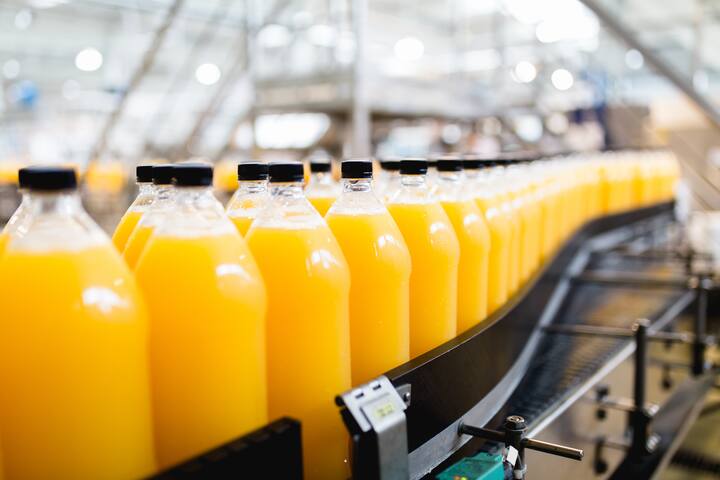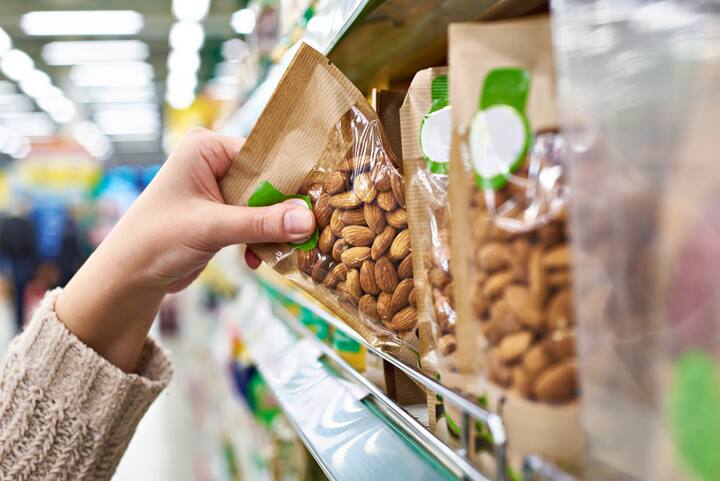
New legislation: ban on BPA in food contact materials
New legislation: ban on BPA in food contact materials
This is a premium article. Premium articles are part of the Normec Foodcare Knowledge Centre subscription. All knowledge and experience from every area of expertise is brought together in the Knowledge Base. Here you will find all relevant information about various product groups and legislation. Curious? Read what the Normec Foodcare Knowledge Centre can offer you.
New legislation on BPA (Bisphenol A) “Regulation (EU) 2024/3190 on the use of bisphenol A (BPA) and other bisphenols and bisphenol derivatives in food contact materials” has been published. This concerns a ban on BPA in materials that come into contact with food. The European Commission announced this after a report by the EFSA in April 2023 showed that Europeans are consuming far too high a dose of this chemical.
What is BPA and why is it being banned?
Bisphenol A (BPA) is a chemical commonly used in food packaging, such as coatings for metal cans and reusable plastic bottles. It is the subject of new regulations from the European Commission. As of 20 January 2025, the use of BPA in materials that come into contact with food will be prohibited. This decision follows stricter scientific evaluations by the European Food Safety Authority (EFSA), which concluded that BPA may be harmful to the immune system and pose other health risks. BPA has been used for decades because of its functional advantages, such as strengthening plastics and preventing corrosion in cans. However, research has shown that BPA can migrate into food, posing health risks. In 2023, EFSA concluded that current exposure levels through food are too high for all age groups, leading to a tightening of regulations. The harmful effects of BPA include disruption of the immune system and a possible role in autoimmune diseases such as rheumatoid arthritis and psoriasis. Other bisphenols with similar health risks are also covered by the ban.

What does the new legislation say?
Bisphenol A (BPA) and its salts may no longer be used in materials that come into contact with food. In addition, products containing BPA may no longer be placed on the EU market.
However, there are some exceptions for specific applications. These applications are set out in a separate list (Annex II) and are subject to strict conditions. Materials manufactured with other bisphenols or bisphenol derivatives must not contain BPA residues. Furthermore, not only BPA is banned, but also other dangerous bisphenols and their derivatives. The use of these substances in food contact materials is only permitted if a specific exemption is granted. If a dangerous bisphenol must be used, special approval is required through an application procedure with the European Food Safety Authority (EFSA). In addition, companies must inform the EU about possible alternatives to BPA and other bisphenols, although small companies are exempt from this. To ensure compliance with the regulations, strict tests are carried out to check that products are BPA-free. The EU has established specific test methods for this purpose. Furthermore, companies must be able to demonstrate that their products comply with the regulations by means of a Declaration of Compliance. This documentation must be available for inspection by the competent authorities.In short, BPA is completely banned in food contact materials, as are other dangerous bisphenols, unless there is an approved exemption. Companies must prove that they comply with the rules and actively seek alternatives.
Amendment to Regulation (EU) 2011/10 and repeal of Regulation (EU) 2018/213
This new regulation amends Regulation (EU) No 10/2011 on plastic materials and articles intended to come into contact with food, Annex I: the EU list of substances that may be intentionally used in the manufacture of plastic layers in plastic materials and articles. The following are deleted: No 151 (2,2-bis(4-hydroxyphenyl)propane) and No 154 (4,4′-dihydroxydiphenylsulphone). These substances may only be used in the manufacture of plastic materials and articles for which no safe alternatives are yet available. This authorisation must be requested and is always temporary.Regulation (EU) 2018/213 on the use of bisphenol A in food contact coatings and varnishes is repealed in its entirety.
Transition period
Single-use products that come into contact with food
Finished disposable products that come into contact with food and contain BPA may continue to be sold until 20 July 2026. A longer transition period until 20 January 2028 applies to certain products. This applies to:
Disposable products used to store vegetables, fruit (except juices) and fish.
Disposable products with a BPA-containing varnish or coating applied only to the outside of metal.
These products may be filled and sealed with food for one year after the transition period. They may then be sold until stocks are exhausted.
Reusable products that come into contact with food
Reusable products that come into contact with food and contain BPA may still be placed on the market for the first time until 20 July 2026.
A longer period applies to professional food production equipment: this may still be placed on the market for the first time until 20 January 2028.
All reusable products covered by these transitional rules may continue to be sold until 20 January 2029.